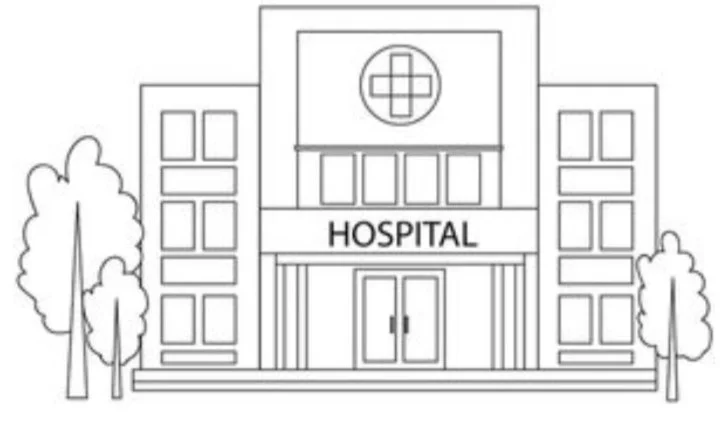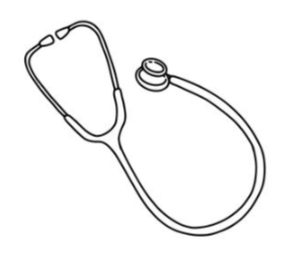Obtaining medical records after someone has died
Having phoned the Mencap Helpline, Jenny and Patrick are put in touch with Luke who is a volunteer solicitor. They tell him that they have been left with lots of questions after the death of their son Theo, and feel they had no power or control once Theo went into hospital from his care home. They feel that they were not kept informed of the treatment plans in the lead up to Theo’s death.
Luke tells them that families can often feel disempowered when they are not being given the information throughout the course of their family member’s treatment. He says that the starting point is to understand what information is in the medical records. He tells them that they will need to request records from both the NHS Trust where Theo was treated and the care records from when he was looked after at the home.
Luke advises that it is important that they obtain these records, as they are likely to detail important information which may begin to explain the circumstances of Theo’s death. It will detail the treatment that was given to Theo while he was ill. Luke explains that obtaining these records may answer some of their questions, such as who was with Theo when he died and what decisions were made around the care he received.
With this information, they can start to see if there were any actions that should have been taken while Theo was ill and whether there were measures which should have been taken to prevent his death. Luke explains that having this knowledge can bring power to decide what to do next and determine what questions need answering.
Finally, Luke tells Jenny and Patrick that if a civil claim for medical negligence was to arise from Theo’s death, that having medical records would be essential evidence that they would need to support their claim.
See below what Luke would tell Jenny and Patrick about their rights to Theo’s records, what they need to ask for and how they can obtain them.
Obtaining records
Hospital records
Hospital records give an overview of the medical care the person who has died received while in their care, and contains information about:
What medication the patient received when in hospital
Clinical notes of the care given by doctors and nurses
Operation notes
Test results and scan reports
Correspondence about the patient’s care
Internal correspondence about treatment plans
Luke advises Jenny and Patrick that they will need to obtain these records if they would like to engage with the NHS Trust’s complaint process as this will help them to ask probing questions about the treatment Theo received.
Luke advises them to look at the AvMA website (link) for some further information on how to request the records. Most hospitals have their own form which will be available on their website. The starting point will be to search for access to records on the hospital records which will take you to the form. Luke will help them do that while he is on the phone to them.
Luke also advises Jenny and Patrick that this may take up to 40 days to comply with the Access to Health Records Act (1990). He warns them that they may be refused the records.
Care Home records
Care home records give an overview of the residential care Theo received during his stay, and contains information about:
What medication Theo took while in the care home
Daily care notes taken by healthcare staff
Correspondence
Risk assessments
Care pathways
Luke tells Jenny and Patrick that they will need to write directly to the Care Home to obtain the records they have from Theo’s care. He tells them that they will need to evidence that they are the personal representative of Theo’s estate, or that they can attach a copy of the Grant of Probate as proof of their authority to act.
GP records
Like with hospital records, the request can take up to 40 days to process to comply with the Access to Health Records Act (1990).
He tells them that they would need to ask for
Correspondence
Printed records of Consultations
Medication
Referral letters
Luke tells Jenny and Patrick to write to the Practice Manager of Theo’s GP practice. He says that if Theo didn’t have a GP or if the surgery had closed down, then they would need to talk to Primary Care Support England.
Jenny and Patrick’s rights to Theo’s records
Luke explains to Jenny and Patrick that they should be able to access Theo’s records so long as they can show they either had family responsibility for him, or are the Personal Executives (PRs) of his Estate. The NHS hospital or Care Home will ask for documentary proof of their relationship and that they are also the Personal Executives of Theo’s Estate.
Luke tells Jenny and Patrick that if one of they were listed as the adult who had family responsibility for Theo, then they could also ask for a letter from his GP to say that they had family responsibility for him, and this will allow them to obtain the medical records.
If they did not have family responsibility it may be more complicated as they will need to show they are a Personal Executor.
Luke explains what he means by this term. A Personal Executor of Theo’s estate is someone who will collect in all that Theo owns and distribute his finances and property to his beneficiaries, and pay any debts. As Theo’s parents, it should be straightforward to show that they are going to be the personal executors but some hospitals require they to show a grant of probate or a will.
Often families find it very difficult to get hospitals to provide them with copies of their next of kin’s records after their death, because their child or relative did not leave a will. This is even when the hospital knows the relatives well from previous admissions and dealing with the family. If that is the case they should also complain to the PALS office and explain that they are being refused the records of their sibling or child or other relation.
Luke explains that he may need to write a letter on behalf of the family if they are still refused access to the records.
The Access to Records Act 1990 - some more information about whether you are eligible to request the records under this act:
Under the Access to Health Records Act 1990, in order to request your deceased relative’s records you must either be:
1. The Personal Representative of the person who has died. If your relative had a will then the Executor of the will be the Personal Representative. This person could also be the Administrator of the Estate.
2. If there is no will, then you will have to apply to the Administrator. The Administrator is the closest relative to the deceased under the rules of Intestacy. Once you have a Grant of Letters of Administration you do not need to provide any reasons for requesting records. It could also be a sealed Grant of Probate certified by a solicitor in respect of the deceased estate.
3. If you have a claim arising from your loved one’s death and wish to access information relevant to your claim, you must attach documentary evidence to support this (solicitor’s letter or letter from the court). If you are not the personal representative, but have a claim arising out of your loved one’s death then you may only be able to access records relevant to the claim.
4. If you are the adult who has family responsibility for the loved one who died and who lacked capacity, then you can get a letter from their GP to say that you had family responsibility, and this will allow you to obtain medical records



